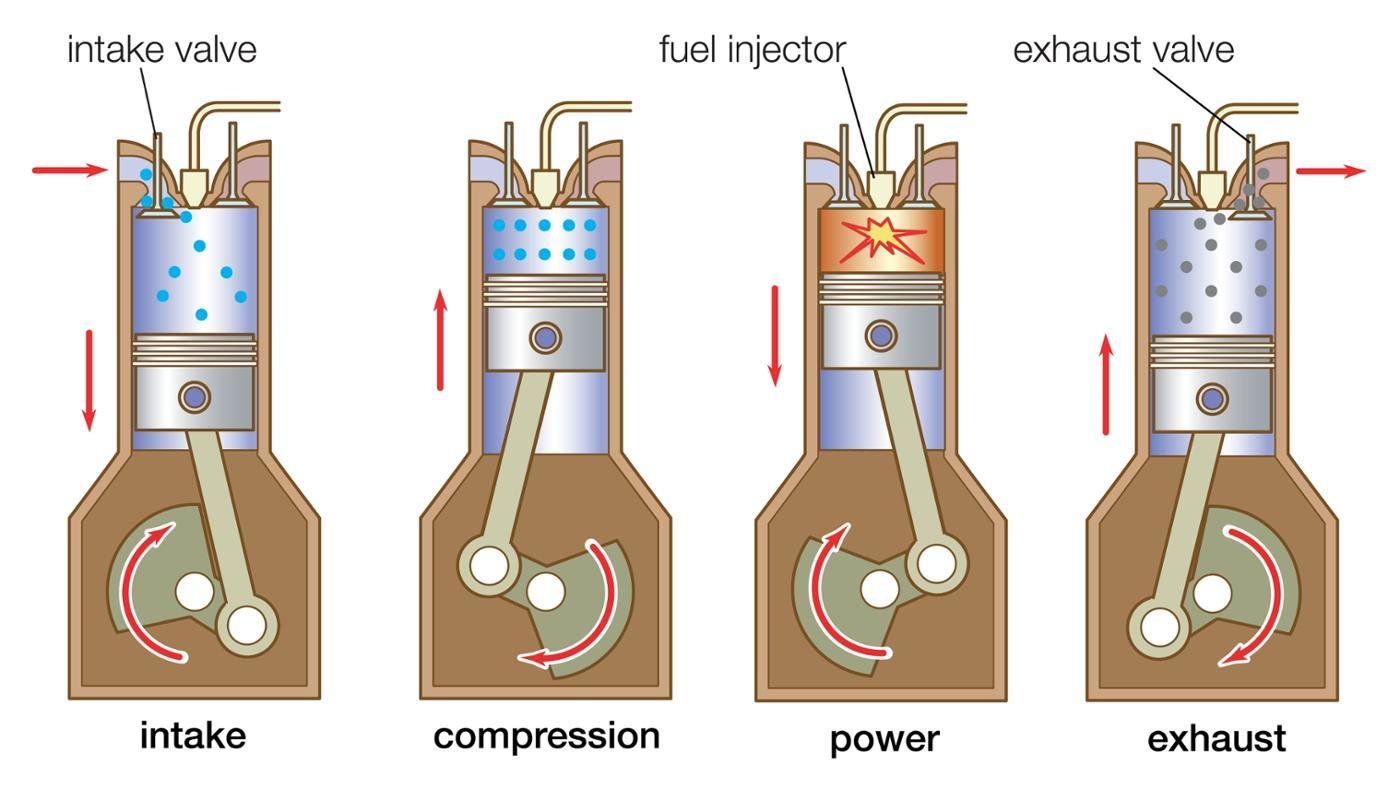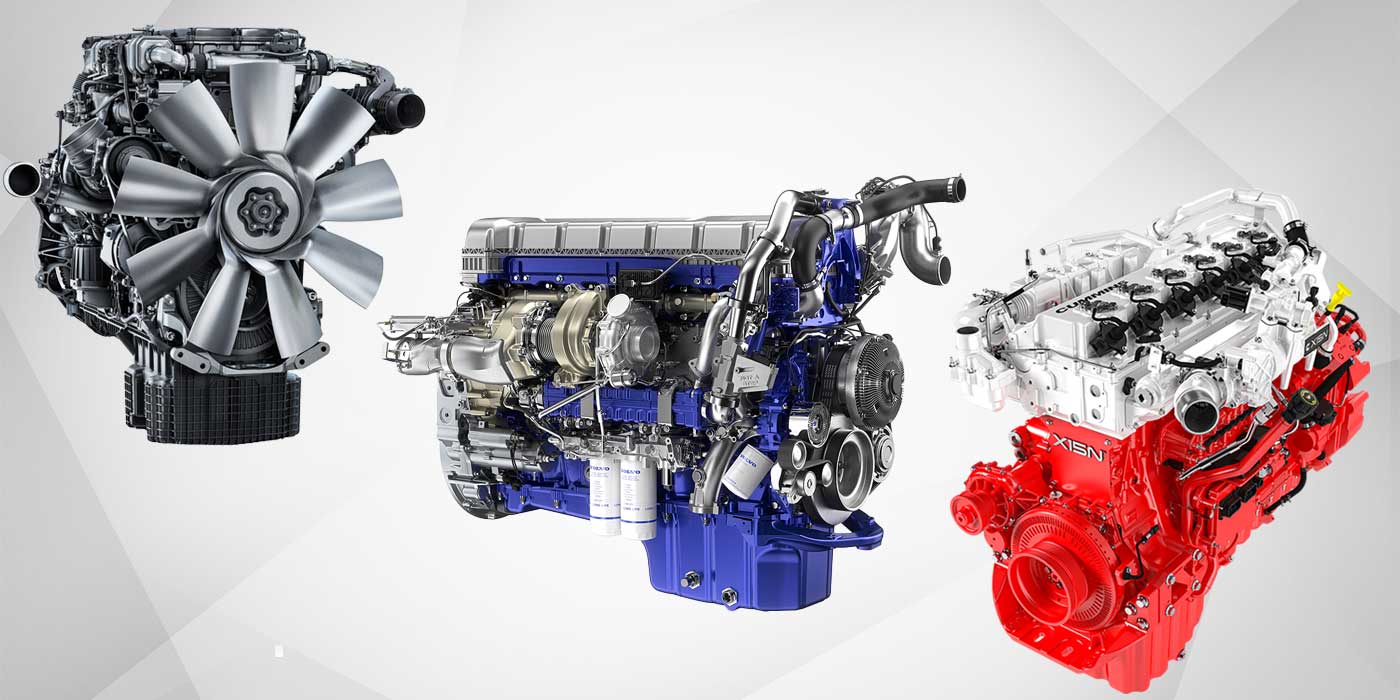Discover a Vast Array of Engines for every single Automobile and Objective
The automobile landscape is increasingly complicated, with a diverse array of engine kinds created to meet specific performance and performance needs throughout different automobile groups. From the high-performance engines that power cars to the fuel-efficient alternatives tailored for everyday travelling, the options are large and varied. In addition, durable engines serve the needs of job lorries, while eco-friendly choices are getting traction in the quest of sustainable transport. Recognizing these distinctions is essential for making educated decisions, especially as emerging innovations continue to form the future of automotive engineering. What ramifications might these improvements hold for customers and manufacturers alike?
Types of Automotive Engines
Automotive engines can be classified right into numerous distinctive types, each designed to satisfy specific performance and effectiveness requirements. One of the most typical categories consist of inner burning engines, electrical engines, and hybrid systems.

Electric engines, on the other hand, operate electrical power saved in batteries, providing instant torque and absolutely no discharges. These engines are coming to be significantly preferred because of improvements in battery innovation and the expanding focus on sustainability.
Hybrid systems incorporate both inner combustion and electrical engines, enabling lorries to enhance gas effectiveness and reduce exhausts by flawlessly changing in between source of power. Each engine kind provides its negative aspects and benefits, affecting factors such as lorry style, intended usage, and market need. When choosing the ideal engine for their details needs., understanding these differences is crucial for customers and suppliers alike.
Performance Engines for Sports Cars
Efficiency engines for sporting activities cars and trucks are especially crafted to provide improved rate, dexterity, and power, setting them in addition to basic vehicle engines. These engines frequently use innovative innovations such as turbocharging, supercharging, and variable valve timing to maximize performance and responsiveness.
Usually, performance engines are developed with higher compression proportions, which permit better power extraction from gas. This results in outstanding horsepower and torque figures, enabling rapid acceleration and higher full throttle. Additionally, the light-weight products made use of in these engines, such as aluminum and carbon fiber, add to reduced total lorry weight, improving handling and maneuverability.
Engine configurations like V6, V8, and even hybrid systems prevail in performance sports autos, each offering unique advantages in terms of power shipment and driving characteristics. The tuning of these engines is likewise crucial; many manufacturers enhance the engine management systems to offer an electrifying driving experience, often consisting of sporting activity modes that adjust throttle reaction and equipment changes.
Efficient Engines for Daily Commuters
In the realm of day-to-day commuting, effective engines play a critical function in optimizing fuel economic climate and minimizing discharges while giving trusted efficiency. As city populaces expand and environmental issues intensify, the need for cars equipped with efficient powertrains has risen.
Modern engines designed for everyday travelers frequently integrate modern technologies such as turbocharging, straight fuel injection, and hybrid systems. Turbocharging improves engine efficiency forcibly check my site more air right into the burning chamber, permitting for smaller sized, lighter engines that do not jeopardize power outcome. Straight fuel injection enhances gas atomization, bring about better combustion and increased efficiency.
Crossbreed engines, incorporating inner combustion with electric power, more enhance gas economic climate, specifically in stop-and-go web traffic, where standard engines can deal with ineffectiveness. Electric motors assist during acceleration and can operate individually at reduced rates, minimizing total fuel consumption.
Moreover, developments in engine management systems and lightweight products contribute considerably to reliable engine layout. By focusing on performance, toughness, and environmental sustainability, manufacturers proceed to supply engines that not just meet the needs of everyday travelling but likewise line up with global initiatives to reduce carbon impacts.
Heavy-Duty Engines for Work Cars
Sturdy engines for work cars are consistently crafted to deliver phenomenal torque and reliability under requiring conditions. These engines are designed to do in atmospheres where standard engines may fail, such as building and construction websites, logging operations, and agricultural settings. The key emphasis of sturdy engines is their ability to create high levels of power while keeping durability over expanded durations of procedure.
Generally, durable engines utilize innovative materials and robust building and construction methods to stand up to the rigors of hefty workloads. Features such as strengthened cyndrical tube blocks, improved cooling systems, and advanced fuel injection innovations contribute to their effectiveness. These engines typically operate at lower RPMs, which aids to maximize gas performance while offering the required power for pulling and transporting.
Along with mechanical robustness, sturdy engines are often outfitted with sophisticated digital control units (ECUs) that handle performance, discharges, and diagnostics. This integration website link permits far better monitoring and upkeep, guaranteeing that job cars remain efficient and functional.
Inevitably, durable engines are an important element in the productivity of numerous sectors, providing the necessary power and integrity to deal with the hardest of tasks.
Eco-Friendly Engine Options
The growing focus on sustainability has actually brought about the development of environment-friendly engine alternatives that prioritize lowered emissions and improved fuel performance. These engines are developed to decrease the ecological influence of vehicles while still supplying the performance and integrity expected by consumers.
Amongst one of the most notable eco-friendly alternatives are electrical and hybrid engines. Crossbreed engines integrate standard internal burning engines with electric propulsion, enabling reduced fuel consumption and reduced greenhouse gas discharges. Electric engines, on the various other hand, operate entirely on battery power, creating no tailpipe discharges and adding to cleaner air high quality.
Another promising growth is the innovation of biofuel engines, which utilize renewable sources, such as plant products, to power lorries (Engines For Africa). By utilizing biofuels, these engines can lower reliance on fossil gas and lower general carbon impacts

As the automobile sector evolves, green engine alternatives will certainly play a vital role in driving the transition towards more sustainable transportation options.
Final Thought
From high-performance engines that improve sporting activities cars and truck capacities to effective designs prioritizing gas economy for everyday commuters, each kind serves a specific function. Heavy-duty engines cater to durable work automobiles, while green options, such as electric and biofuel engines, advertise sustainable transport.

Comments on “Making Certain Long-Term Efficiency with Engines For Africa Products”